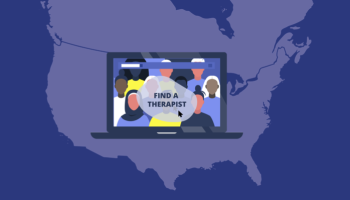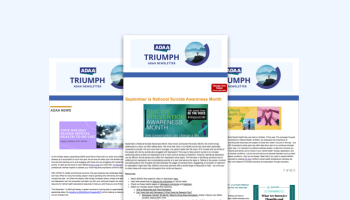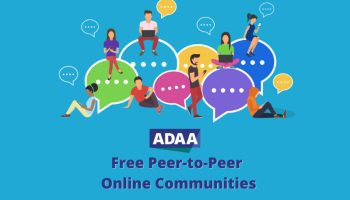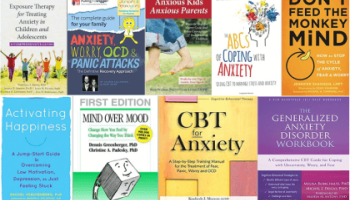Parental support is extremely important for college students, especially those who may be dealing with an anxiety disorder, depression, or other mental health condition.
Below are tips for helping your college-age child:
- Be an active listener. Lend an open ear when you child is feeling stressed or overwhelmed. Listen to what he or she says, as well as to what isn’t said. (Is there any mention of friends or social activities?). Respect his or her feelings even if you don't understand exactly them. This will encourage your child to start talking, which can serve as a source of comfort when feeling overwhelmed.
- Educate yourself. Knowing the difference between everyday stress and anxiety disorder can help you learn what to listen and look for.
- Encourage participation in extracurricular activities. These can help to relieve stress, help your child make new friends, and build self-esteem.
- Explore opportunities for seeking help. Investigate mental health and other treatment options available on campus and in the local community. Call the counseling center to inquire about individual or group counseling sessions, support groups, referrals to off-campus centers, and payment issues for the use of these resources. (Many schools offer them free or at a reduced cost). If your child is still on your health insurance, find out if mental health care is covered.
- Share what you find with your child. Once you've accumulated information about getting help, pass it along. Having the information available will give your child the option to get help when he or she needs it or feels ready.
- Be patient if your child doesn’t seek help right away. It may take a while for your child to seek professional help. It’s important especially for young adults to feel that getting treatment is their own decision.
Learn more about anxiety disorders in college students.
Questions to Ask on College Tours
On college tours parents ask questions about everything from financial aid to class size to dining hall options. Feel free to ask about the mental health resources available to students on campus.
Ask the following questions to determine whether the services will meet the needs of your child struggling with stress and anxiety, an anxiety disorder, or other mental health problem:
- Do you offer individual or group counseling sessions to students? How many and how frequently? Are they free or how much do they cost?
- Do you accept private insurance for counseling or psychiatric services?
- Do you offer health insurance to students? If so, what psychiatric services are covered?
- Do any professionals in the counseling center specialize in treating anxiety disorders?
- What services do you offer specifically for anxiety disorders? (For example, support groups, relaxation techniques, or stress-management resources)
- Is a counselor on call 24 hours a day? If not, what is the process for handling a crisis after hours?
- Does the college run a suicide hotline?
- Under what conditions, if any, would the counseling center notify parents of a student's mental state or treatment?
- What kind of follow-up do you conduct if a faculty member, parent, or friend expresses concern about a student?
















